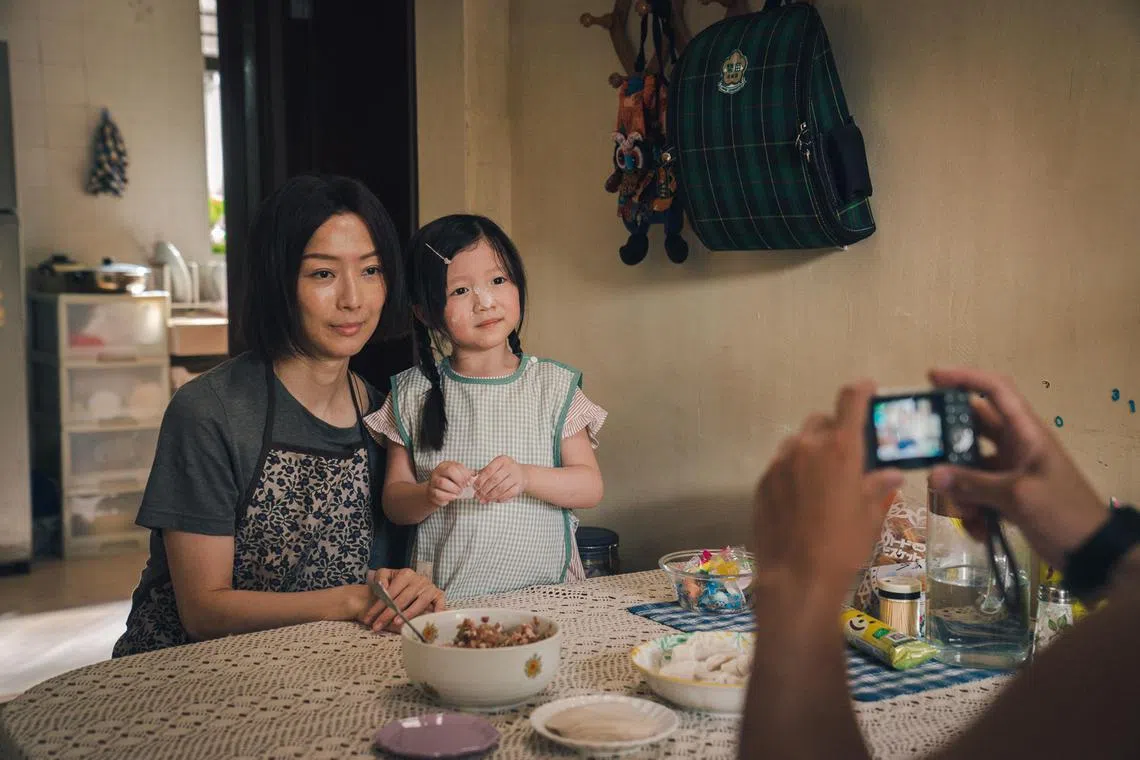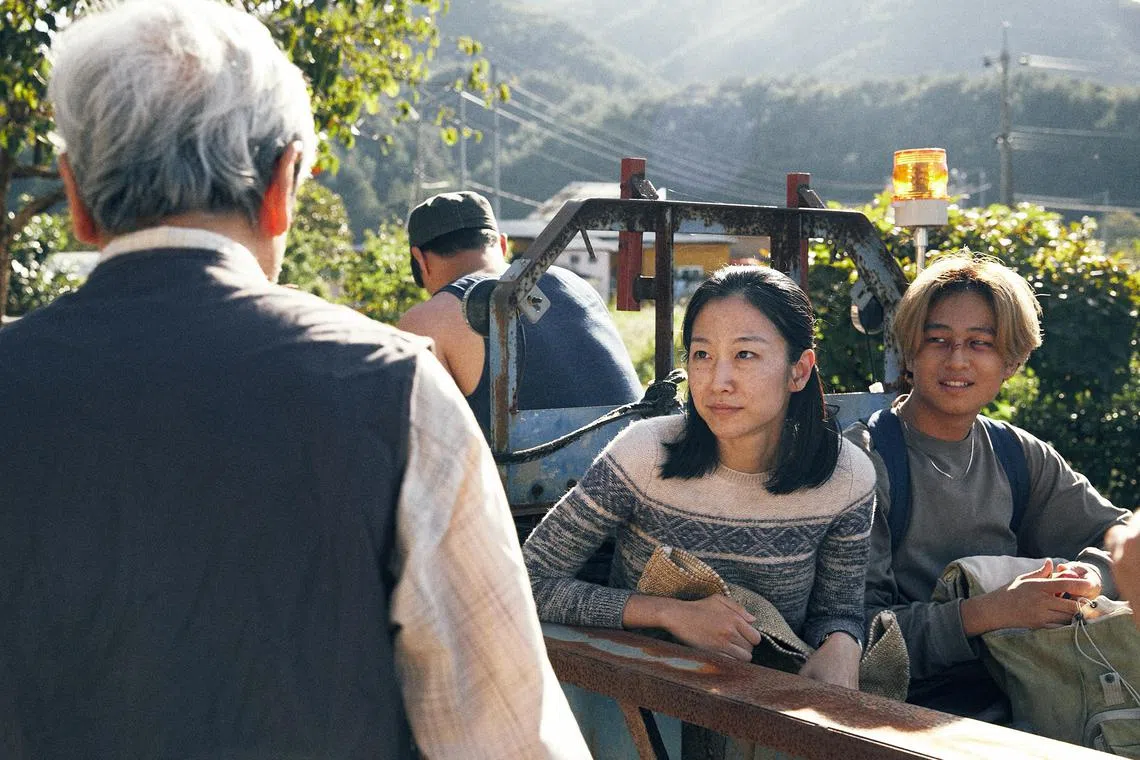At The Movies: Lost Love, Riceboy Sleeps are heartfelt maternal dramas
Sign up now: Get ST's newsletters delivered to your inbox

In Lost Love, Sammi Cheng (left) plays Mei, who turns to fostering children after the death of her son.
PHOTO: GOLDEN VILLAGE
Follow topic:
Lost Love (PG)
92 minutes, opens on Thursday
4 stars
The story: Sammi Cheng was named Best Actress by the Hong Kong Film Critics Society and is the favourite heading into the Hong Kong Film Awards on Sunday for her performance as grieving Mei, who turns to fostering children after the death of her son. There will be joy, but also further heartbreak.
Debut director Ka Sing Fung, a former journalist, provides a rare look inside Hong Kong’s foster care system. The poignant maternal drama Lost Love is a perfection of social realism and boundless compassion.
Fostering means much more than supplementary income for Mei and her husband (Alan Luk), who works odd jobs. She gets to be a mother again, and she certainly deserves sympathy in her efforts to reconcile her selfish needs with those of her wards.
Cheng, with tremendous subtlety, plays out the competing emotions on her character’s weary face. The Cantopop diva is wan and plain, almost beyond recognition. Equally touching is Luk in the role of her loving spouse. “Why don’t we raise a dog?” he proposes as their marriage comes undone from her single-minded dedication to parenting.
Even the children leave an impression, all seven of them over the years – including a traumatised boy, a sweet girl with a cleft lip and two obstreperous preteen siblings with a dad in prison.
The episodic narrative is structured around each arrival in the couple’s working-class New Territories home. All eventually leave, either returned to their families or adopted by another, hence continuing Mei’s cycle of loss along her bittersweet journey of loving and letting go.
Hot take: The best Hong Kong production of the year so far, and there may not be another this affecting.
Riceboy Sleeps (NC16)

Choi Seung-yoon and Ethan Hwang star in Riceboy Sleeps, which tells the story of a South Korean family struggling to assimilate into the West.
PHOTO: THE PROJECTOR
117 minutes, opens on Thursday exclusively at The Projector
3 stars
The story: A widow (Choi Seung-yoon) leaves 1990s South Korea with her young son for the suburbs of Canada, enduring racism in her search for a better life.
Riceboy Sleeps bears fair comparison to the Academy Award-winning Minari (2020) as well as its own clutch of citations, including the Toronto Film Festival top prize, the Toronto Film Critics Association’s best Canadian film and the Busan Film Festival’s Audience Award.
Here is another immigrants’ tale of a South Korean family struggling to assimilate into the West.
Celebrated dancer Choi plays So-young as a slip of a woman with quiet resolve, pulling long hours at a factory job, and a fierce devotion to her son Dong-hyun (Dohyun Noel Hwang), who is cruelly bullied on the playground for being the lone Asian kid – a “riceboy”, pejoratively.
Even his teacher suggests he anglicise his exotic name to something like David. And David continues to strive for acceptance by growing into a bleached-blond teen (Ethan Hwang), out most nights smoking weed with friends.
Parent and child become estranged until So-young receives some devastating news.
The excellent performances never allow for melodrama. A greater degree of emotional heat might have made this a more impactful experience but, as it is, Korean-Canadian writer-director Anthony Shim’s study of displacement – he also appears as So-young’s manager and suitor – is an intimately observed semi-autobiography that ends with a trip back to South Korea.
And it is during this lovely coda that Shim, shooting in 16mm, frees up the boxy aspect ratio to take in the wide open landscape as mother and son gain clarity on the central issues of home and identity.
Hot take: The film-maker recounts his childhood years in a heartfelt, universal story about belonging.


